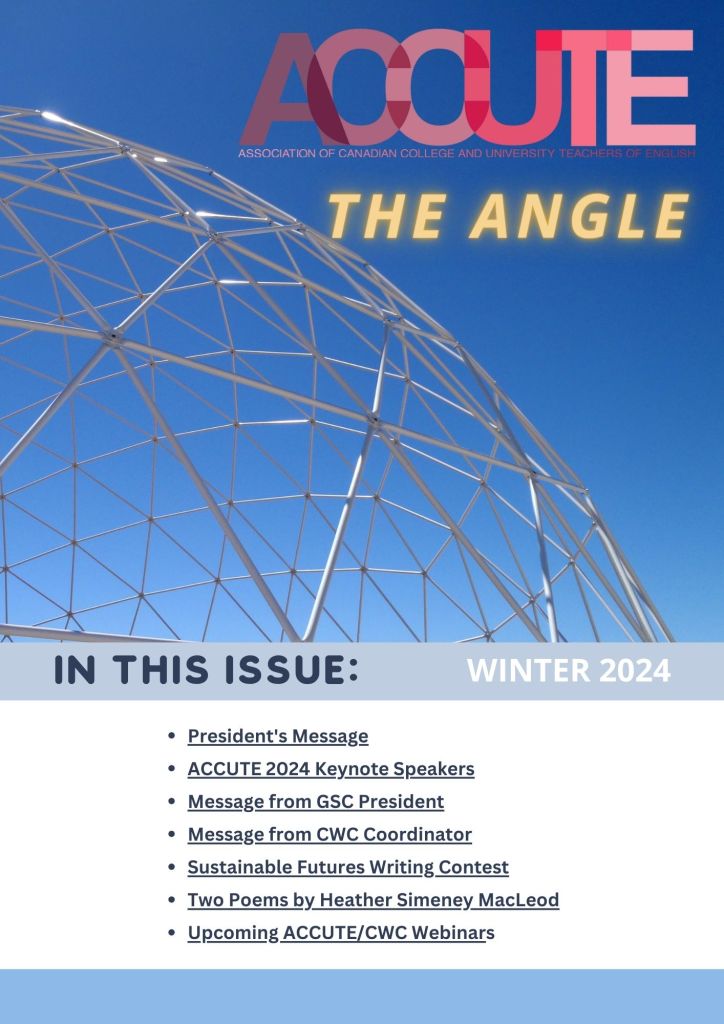Iranian Literature in Diaspora: Re-Writing History or Writing a Nation in Exile
Special Issue of English Studies in Canada
Guest Editor: Mahdiyeh Ezzati
Darya and Baba found the bar culture unseemly. Wouldn’t want her sitting on a skinny bar stool swinging her legs. Mina knew how to study and work very hard. She knew how to swing her legs on that hyphen that defined and denied who she was: Iranian-American.
Neither the first word nor the second really belonged to her. Her place was on the hyphen, and on the hyphen she would stay, carrying memories of the one place from which she had come and the other place in which she must succeed. The hyphen was hers—a space small, potentially precarious. On the hyphen she would sit and on the hyphen she would stand and soon, like a seasoned acrobat, she would balance there perfectly, never falling, never choosing either side over the other, content with walking that thin line.
-Marjan Kamali, Together Tea
The Iranian diaspora largely began after the 1979 Revolution and the Iran-Iraq war (1980- 1988). Iranian diasporic literature gained scholarly attention after the September 11 attacks, particularly with the publication of Azar Nafisi’s Reading Lolita in Tehran: A Memoir in Books. However, it has always been a challenge for scholars to address literary representations of the Iranian “imagined community” as they walk the thin line to define a hyphenated identity for themselves. Although Iranian diasporic literature has been primarily analyzed in terms of Iranian women’s real and metaphoric unveiling, it is imperative to initiate the long-overdue dialogue on how this literature has aided Iranian communities living in Western societies to construct a hyphenated identity and establish themselves as a re- collectivity through, as Lily Cho suggests, the interplay of “relationships within and across diasporas” (Eating Chinese15).
The women-led protests of 2022 have captured the interest of activists, feminists, and scholars alike, making it even more timely to explore the role of Iranian diasporic literature both in defining a hyphenated identity for Iranian communities outside Iran and in its impact on other Muslim and non-Muslim diasporas. This special issue aims to frame, through theoretical and practical scholarly contributions, the complex issues surrounding Iranian diasporic literature and the hyphenation process of diasporic collectivities.
The editor seeks contributions of 6000-9000 words that explore one or more fundamental questions about the Iranian diaspora. These questions may pertain to representations of Iranian identity in its diasporic literature, the role of its diasporic literature in social and political movements occurring in Iran, and theoretical frameworks that could aid in studying Iranian literature in diaspora. Examples include:
- Drawing on the concept of “diaspora,” what distinguishes a diasporic community from other types of migrant communities? How can we define “Iranian diaspora” in North America or other Western societies?
- How does the idea of “homeland” and “hostland” relate to the experience of diaspora, and how might this be reflected in Iranian diasporic literature? How have narratives written by Iranian-Canadians approached a hyphenated identity in Canada, for instance?
- How do diasporic communities maintain their sense of cultural identity and connection to their homeland, and what role might literature play in this process?
- What are some of the challenges that diasporic communities face in terms of preserving their cultural heritage for future generations? How are these challenges addressed in literature? What aspects of Iranian culture appear to dominate Iranian diasporic literature?
- How is the experience of displacement and the search for belonging narrated in Iranian diasporic literature, and what theoretical frameworks might be useful for analyzing these themes?
- How has the issue of the hijab in Iran been influenced by the larger debate surrounding Islam and women’s rights, particularly in the context of the September 11 attacks and the subsequent War on Terror? How is this debate represented in Iranian diasporic literature?
Papers taking a critical or theoretical approach are welcome; papers offering scholarly case studies or historical or cultural accounts, are equally welcome.
The editors are excited to receive your work, and to work with you in developing it further should it be a good fit for this special issue of ESC. Please submit an abstract (500 words) and a bio (50-100 words) by 30 April 2024 to apero@uwo.ca and mezzatik@uwo.ca.
Upon first acceptance by the editors, full articles will be due 30 November 2024, though completed articles are welcome to be submitted earlier. Articles will then undergo external peer review prior to final acceptance and publication as part of the special issue.
Categories: ESC, Non ACCUTE CFPs



